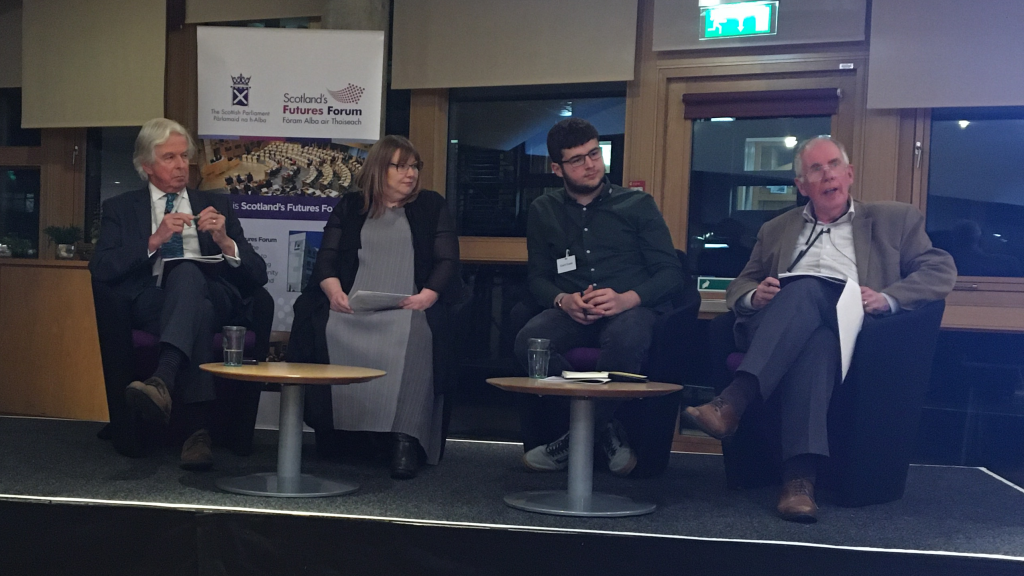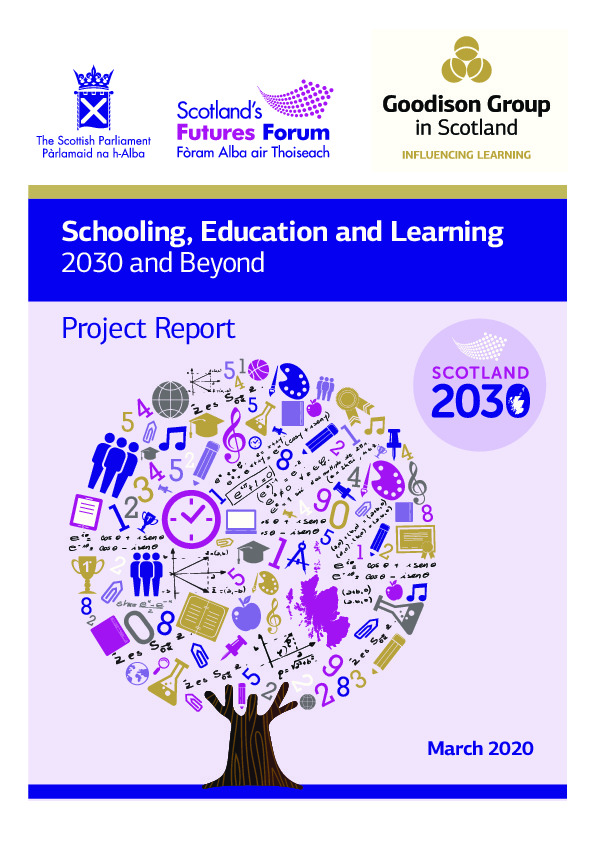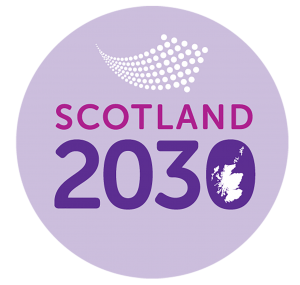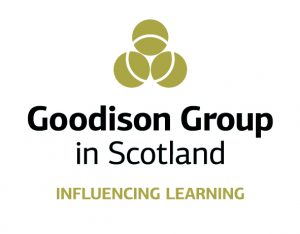Tuesday 10 March 2020, at the Scottish Parliament
To mark the publication of the Futures Forum and Goodison Group in Scotland report exploring the future of education in Scotland, leading figures from Scottish education joined pupils from Glasgow for an event on 10 March 2020 to discuss how schooling might change by 2030.
The Schooling, Education and Learning report, published on 6 March 2020, features a thought-provoking scenario of what Scottish education might look like in 2030 and beyond, along with some key questions about the leadership of change in the education system.
To complement the report, pupils from St Paul’s RC High School in Glasgow and its feeder primary schools presented their interpretation of what school might look like in 2030.
Working with the social enterprise Braw Talent, the pupils created a film about their hopes for the future. Using the scenario as a basis, they wrote, directed, acted in and produced a short film.
2030 and Beyond: The Film
The pupils presented the film with this introduction:
In 2030 the curriculum needs to be all about creativity and project work.
Our film project was active and practical. We learned a huge amount from it. We learn best by doing things. In 2030 we should be learning every subject through the expressive arts and projects like this one.
Creative and practical group projects will help develop our problem-solving skills. This will help us come up with creative solutions to the problems that climate change will throw at us.
2030 in our film looks fun, with beanbags and holographic teachers. But in reality, our future is filled with uncertainty because of the climate crisis. Education needs to prepare us for that.
By 2030 climate change will be so obvious that we can no longer just greenwash over it. It will be an everyday reality. Everything in schools will be designed with the climate crisis in mind.
Education in 2030 needs to be about regeneration and climate justice. Not just sustainability but regeneration. And not just a safe future for us here in Scotland but for all young people around the world.
By 2030 we will be able to reuse or recycle everything in our schools. Schools will produce no waste at all.
The film was produced by pupils from St Paul’s High School, St Marnock’s Primary School, St Bernard’s Primary School, St Vincent’s Primary School and St Angela’s Primary School in Glasgow.
Working with Braw Talent to facilitate the film were:
- Lisa Keddie, one of BBC Scotland’s voices of 2020;
- Douglas King, BAFTA and BIFA nominated film director;
- Andrew O’Connor, BAFTA nominated cinematographer; and
- Cheryl Tait, member of the make-up team on Outlander, Mrs Brown’s Boys, Scot Squad and many other BBC productions.
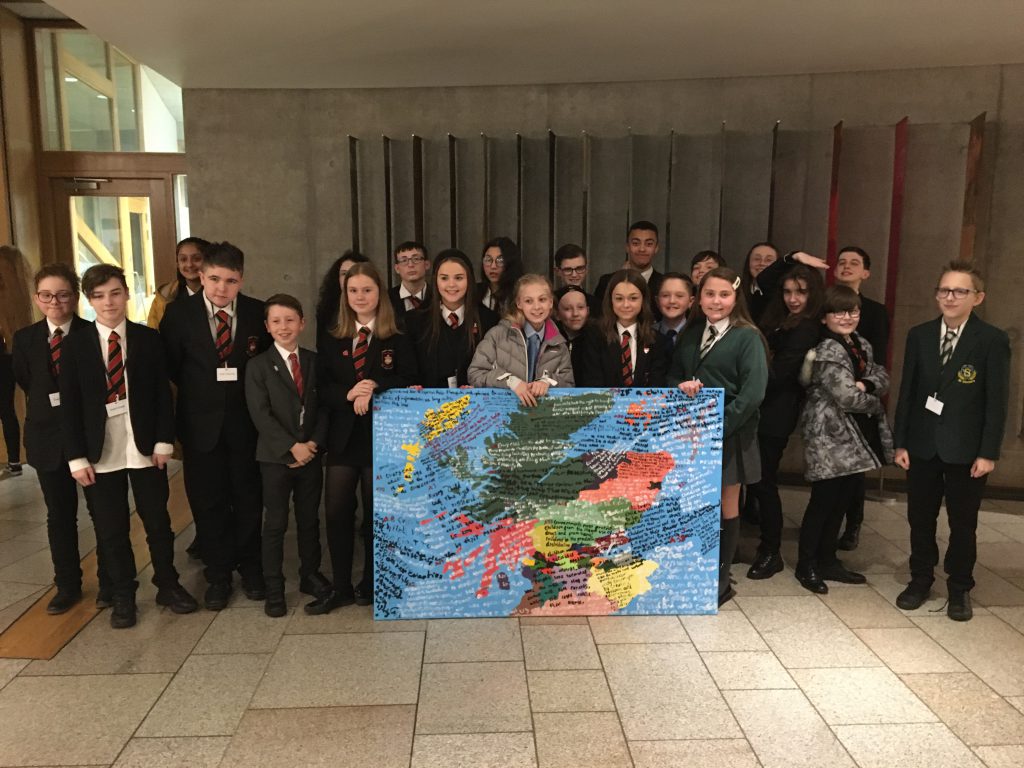
Panel discussion
Following their presentation, Sir Andrew Cubie chaired a panel-led discussion on the report and the opportunities and challenges faced by Scottish education over the next 10 years and beyond.
On the panel were:
- Clare Adamson MSP, Convener of the Scottish Parliament’s Education and Skills Committee
- Keir Bloomer, Education Consultant
- Liam Fowley MSYP, Convener of the Scottish Youth Parliament’s Education and Lifelong Learning Committee
The debate covered the importance of trust within the education system, the role of teachers and young people, and the opportunity to encourage debate on the future of education throughout Scotland.
